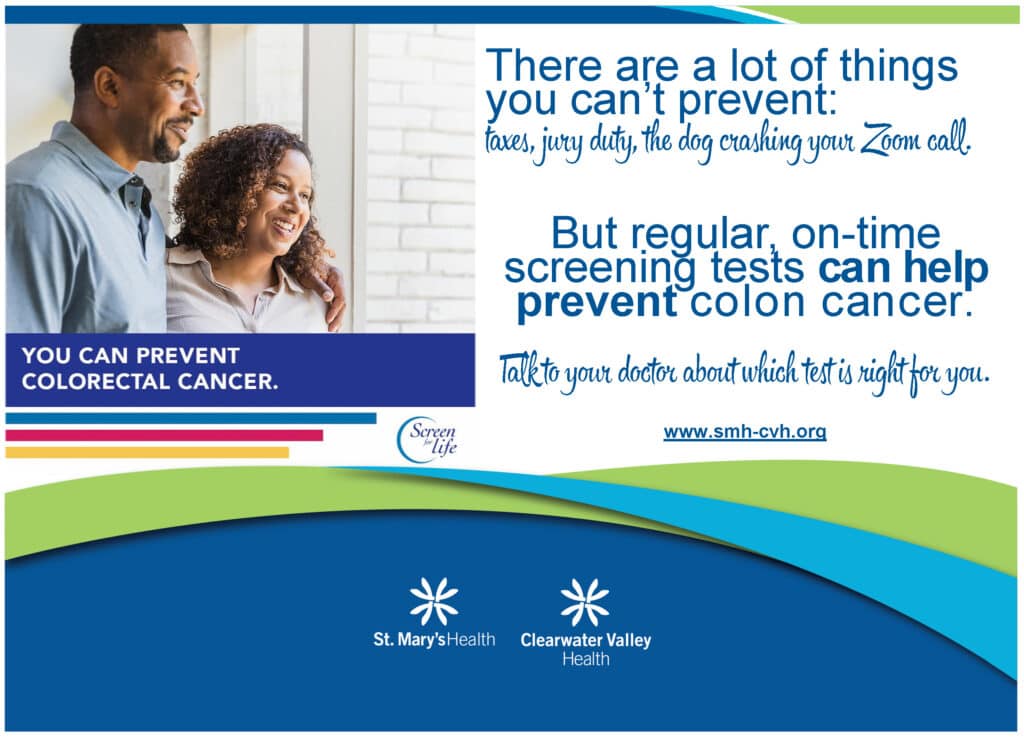 By Dr. Kelly McGrath
By Dr. Kelly McGrath
The last 2 years have been consumed by many new and distracting priorities in our lives. The COVID-19 pandemic has disrupted many of our previous routines, such as preventative health care, that we all need to be as healthy as possible. In addition to getting routine wellness visit, it is important that we all keep up with our screening for common cancers.
Recent studies have shown that Americans have decreased cancer screening for breast, colon and cervical cancers by 23-45% as compared to pre-pandemic levels. The consequences of this are tragic. There has been an increase in the diagnosis of late stage cancers in 2021. This means that these patients diagnosed later have a lower chance of survival. It also means that their treatment will be more complex and costly.
Although almost all cancers benefit from early detection, three types of cancer stand out because they are very easy to screen for and the benefit is quite large for early detection. Those cancers are breast cancer, cervical cancer and colon cancer. If you are not up-to-date with screenings for these cancers, we strongly encourage you to get up-to-date this year.
March is colon cancer awareness month. People between ages 50 and 75 should be screened for colorectal cancer. Those with family history of colon cancer or high risk condition such as inflammatory bowel disease should be screened at an earlier age as best determined by their primary care provider. Colon cancer is typically a slow growing but very serious malignancy. If caught in its early stages, it usually can result in a cure. Precancerous polyps also can be removed during a colonoscopy such that colon cancer can be prevented altogether. While colonoscopy is the preferred and best method to screen for colon cancer, there are other easy and less costly ways to screen for the disease. These include FIT tests which is a stool test that can be submitted from your own home and brought into the clinic. The FIT test needs to be done yearly and, if it is positive, a follow-up colonoscopy is necessary. A positive FIT test does not necessarily mean that the patient has cancer but is more an indication of the need for further screening. Cologuard test is another stool test that can be submitted by mail. This is more powerful than the FIT test but also is more expensive. This can be ordered through your primary care provider. Colonoscopy is the best way to be screened for colorectal cancer. If the study is normal and there are no other serious risk factors, it typically doesn’t need to be repeated sooner than every 10 years. Whatever method you may chose, if you are between age 50 and 75 or have high risk, please get up-to-date with your screening.
Breast cancer screening mammogram is another area where there has been lower than normal screening. All women between ages 50 and 75 years should have a mammogram every other year at a minimum. If you fit into this category and have not had your mammogram in the last 24 months, or are in the high risk group, please call to have your mammogram scheduled.
Cervical cancer is viewed as a nearly completely preventable cancer. The transition to cervical cancer usually occurs fairly slowly so appropriate screening and management in advance can completely prevent cervical cancer. For women between the ages of 21 and 65, who do not have special risks, screening should typically be every 3-5 years depending on the type of testing. Your provider can help determine the best testing and frequency for you.
The pandemic has impact our lives in so many ways, please take action today to get up to date with your cancer screenings. A little bit of your time now may just save your life.

